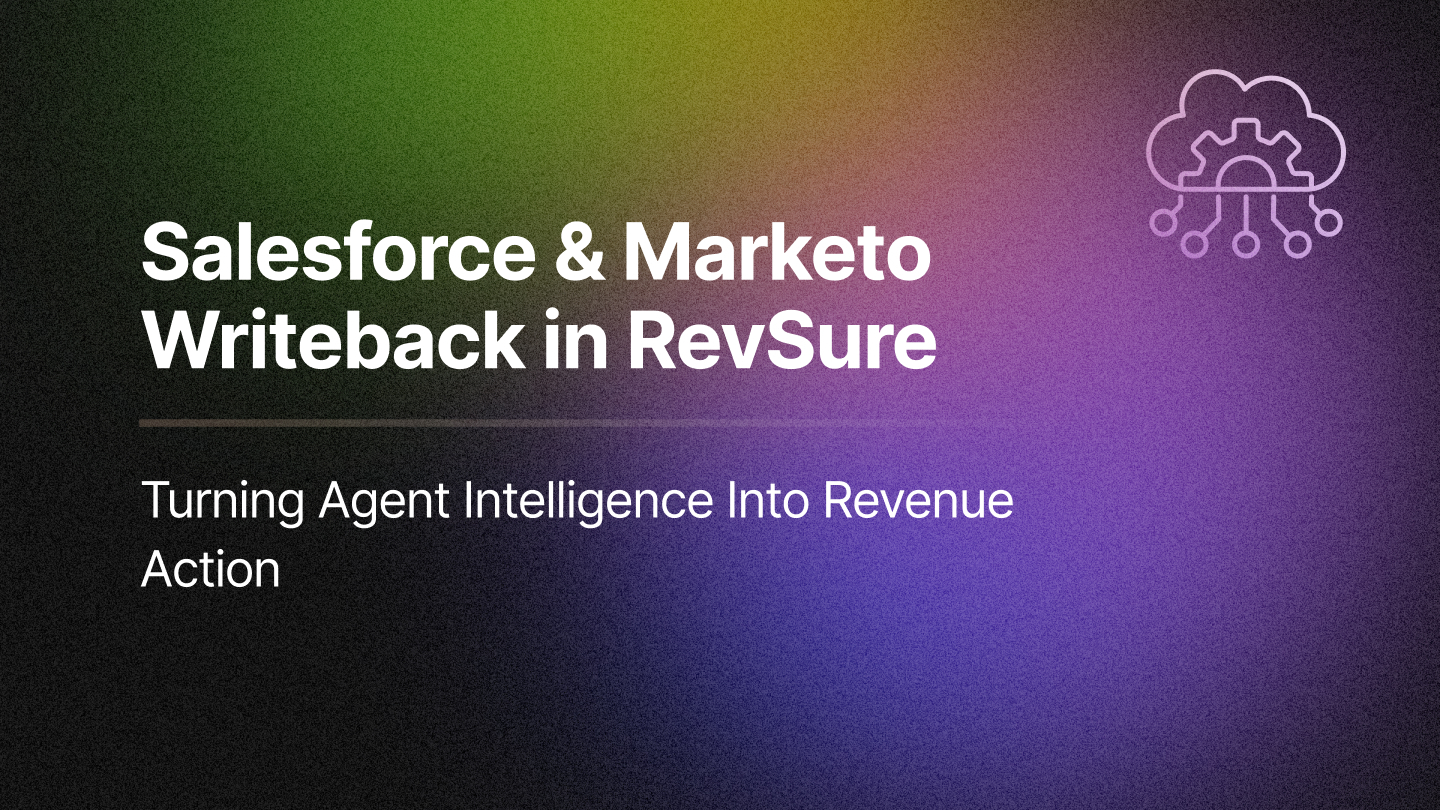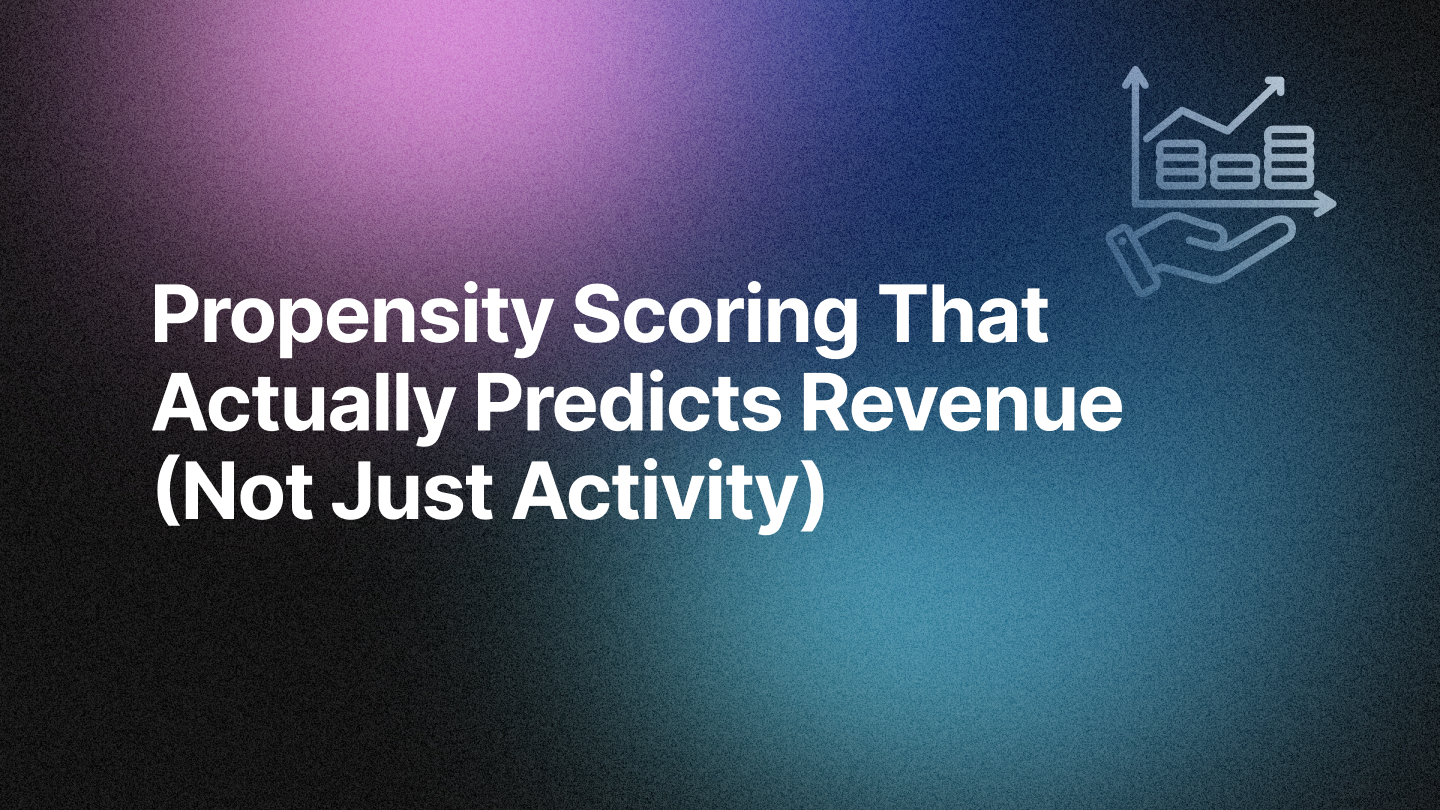In high-growth B2B organizations, attribution is no longer a marketing-side concern. It’s a strategic, organization-wide capability. One that informs where to invest, how to operate, and how to grow. Yet in many companies, attribution remains a siloed, reactive function, managed by marketing, debated by sales, and distrusted by finance. This model is broken, and it’s holding revenue teams back.
According to RevSure’s 2025 Attribution Analysis Report, 87% of revenue leaders report that misaligned attribution models delay critical decisions. Despite this, only 34% of organizations have a formal, cross-functional process in place to manage attribution holistically.
In today’s environment, where every dollar and every day counts, attribution cannot be a passive reporting layer. It must evolve into a shared system of insight and action, governed by a team that spans the entire go-to-market engine. That’s why leading B2B organizations are forming cross-functional attribution task forces.
Attribution Is About Confidence
B2B buyer journeys have become longer, noisier, and far more complex. Multiple personas engage at different stages, across disconnected platforms and channels. Influences that shape deals, executive referrals, peer recommendations, and partner touchpoints often go untracked. And yet, attribution discussions remain narrow. Marketing defends channel mix decisions. Sales questions lead quality. RevOps tries to bridge systems. Finance seeks ROI but is handed vanity metrics.
The result is misalignment at best, and stalled investment decisions at worst. RevSure’s research found that 68% of GTM teams lack confidence in the accuracy of their attribution data. More than half say attribution disputes directly impact budget approvals and campaign planning. A cross-functional attribution task force addresses this by aligning all revenue stakeholders around a single source of actionable truth. Attribution shifts from a retroactive scorecard into a proactive operating system.
What the Task Force Owns
An effective attribution task force doesn’t merely review reports. It owns attribution as a product—defining its purpose, maintaining its integrity, and adapting it as the business evolves.
Its responsibilities include:
- Goal alignment: Clarifying what the organization wants from attribution, whether reducing CAC, optimizing budget mix, or accelerating sales velocity.
- Data accountability: Ensuring source systems, from CRM to MAP to intent data, are governed collaboratively across departments.
- Model evolution: Selecting models based on GTM needs, testing assumptions, and refining logic as buyer journeys shift.
- System stewardship: Operationalizing attribution as a continuous loop, so teams can act, measure, and improve in near real time.
What it does not do: gatekeep reporting, push one narrative as “truth,” or function solely from the marketing lens.
The Right People at the Table
The power of the task force lies in its composition. Attribution is multifaceted; it touches campaign structure, lead scoring, pipeline dynamics, budget frameworks, and data governance. That’s why the core team must span the GTM spectrum:
- Marketing Ops: Leads campaign tagging, flow logic, and MAP alignment.
- Sales Ops: Brings stage mapping, lead progression insight, and CRM rules.
- RevOps: Manages funnel benchmarks and cross-system integration.
- Demand Generation: Owns budget mix and campaign source planning.
- Finance: Provides ROI expectations and budget pacing oversight.
- Analytics / Data Science: Designs models, maintains data fidelity, and builds confidence scoring frameworks.
This group must be empowered to make decisions, adapt models, and act quickly. Think of them as attribution product managers, responsible for a system that must evolve alongside GTM strategy.
Why Attribution Efforts Often Stall
Even with a modern stack and talented teams, attribution initiatives frequently underdeliver. The reasons are consistent across industries and company sizes:
- Attribution is treated as a report, not a system: Most organizations review attribution post-quarter, making it a backward-looking exercise. According to RevSure’s report, 60% of marketers use attribution only for retrospective analysis, missing the opportunity to guide decisions in real time.
- Overreliance on default models: Pre-built W-shaped or U-shaped models are used in 78% of companies, but only 29% believe they reflect actual buyer journeys. Default logic cannot accommodate the nuances of complex buying committees, overlapping campaigns, or partner influence.
- No reconciliation between digital and human signals: 41% of senior GTM leaders believe critical touches, like executive referrals, peer introductions, or strategic nudges, are excluded from attribution entirely. These missed moments undermine model credibility.
Why the Technology Matters
Attribution failures rarely stem from tools. They arise from trust gaps, unclear ownership, and functional misalignment. Once a cross-functional governance structure is in place, however, the right technology becomes a powerful force multiplier, and that’s exactly what the
RevSure B2B Attribution Engine delivers. The engine is designed for modern GTM complexity, built from the ground up to work seamlessly across systems and evolve with your unique needs:
- Multi‑Level AI Engine: It analyzes hundreds of attributes at scale, from lead, account, and opportunity records, to deliver conversion propensities, while also modeling high-level GTM trends.
- Multi‑Touch Attribution with Marketing Mix Regression: RevSure’s engine interprets every interaction, online and offline, and attributes value across the funnel. Its regression models then quantify how each marketing channel (e.g., Google, LinkedIn, Meta) contributes to pipeline and revenue.
- Predictive Campaign Performance: Rather than relying on past outcomes, the engine projects future campaign impact. It connects attribution data with lead and opportunity scores, helping GTM teams choose which campaigns to amplify or pause.
- Incrementality & Causal Impact Analysis: Using statistical methods like pre/post testing and causal lift, it answers the most critical question: Did this campaign truly impact pipeline, or did those deals happen anyway?
- Fully Unified GTM Data Graph & Journey Timeline: RevSure connects activity across CRM, MAP, advertising, intent data, and more into a single GTM Data Graph. This feeds a comprehensive Journey Timeline for each lead and account, creating one source of truth that powers all AI-driven models.
- End-to-End Funnel Intelligence: With unified funnel views, GTM teams can track stage-to-stage volume, velocity, conversion, and leakage, all in one consistent reporting layer.
Together, this architecture shifts attribution from a “nice-to-have” analytics layer into an operational engine, one that powers proactive decisions, dynamic prioritization, and real-time budget reallocation.
The Cultural Shift: Attribution as a Shared System of Action
When attribution lives in a silo, it invites skepticism. When shared across functions, it creates alignment. Sales begins to participate in refining scoring models. Marketing adjusts strategy based on pipeline impact, not just top-of-funnel activity. Finance gains visibility into ROI pathways that justify real-time budget decisions. And RevOps gains a reliable lever to orchestrate funnel health.
The Path Forward
The case for a cross-functional attribution task force is no longer optional; it’s essential. Attribution, when governed and operationalized across GTM teams, becomes more than a model. It becomes a strategic operating system. One that accelerates decision-making, enables experimentation, and drives measurable revenue outcomes. It’s not about credit. It’s about clarity. It’s about speed. It’s about trust. And with the right structure, the right team, and the right attribution engine, it’s within reach.
Related Blogs








